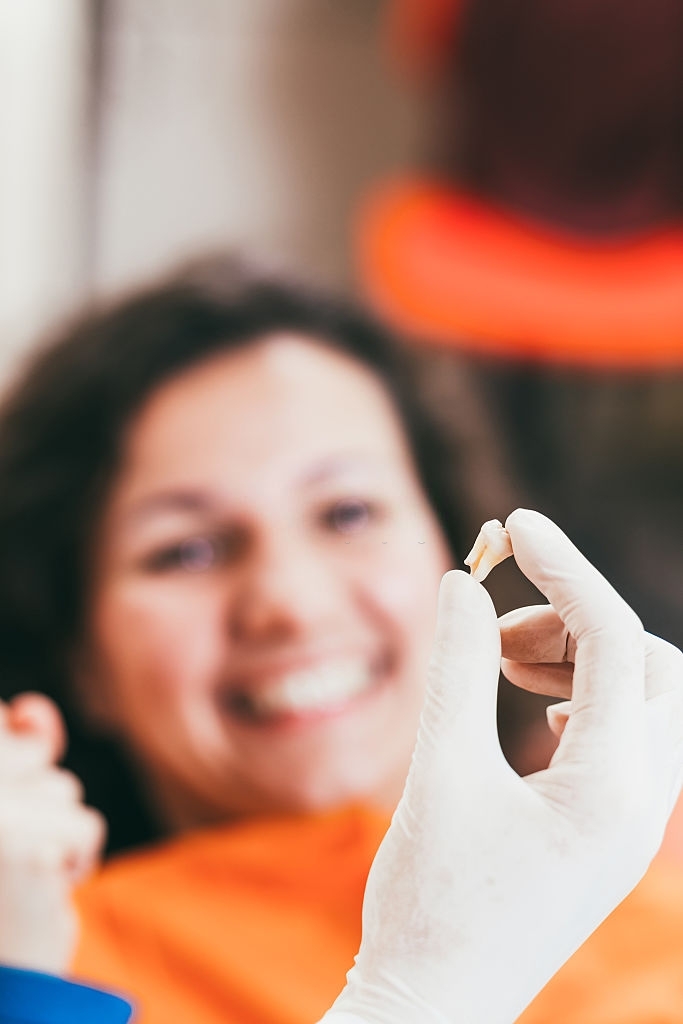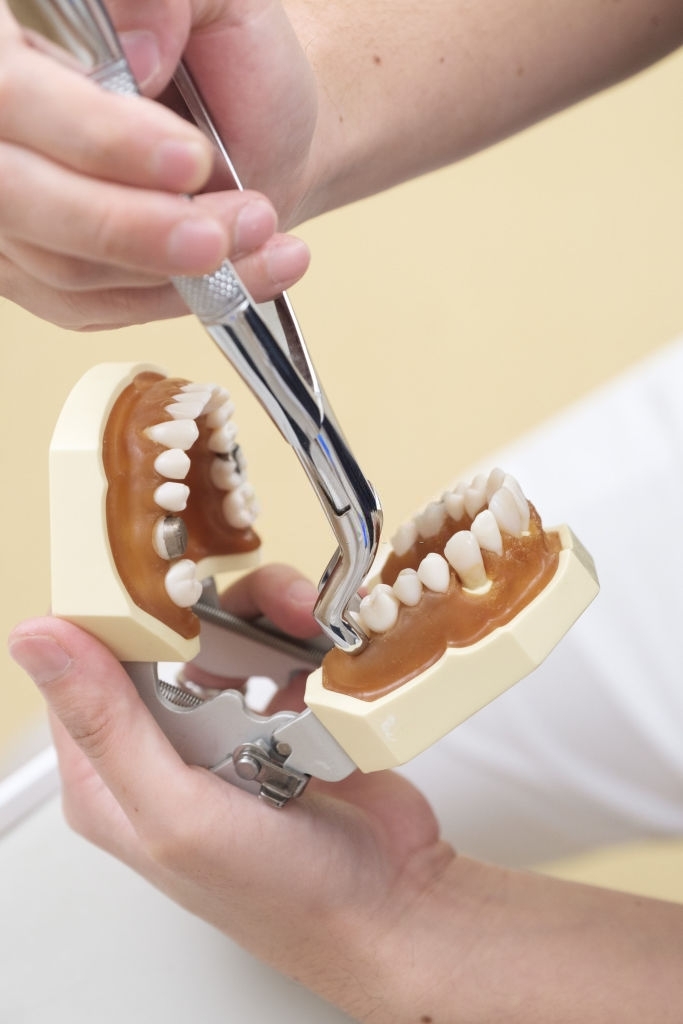Tooth Removal
Tooth Removal
Although permanent teeth can last a lifetime, teeth that have become damaged or decayed may need to be removed.
Other reasons include:
- A crowded mouth. Sometimes dentists extract teeth to prepare the mouth for orthodontics. The goal of orthodontics is to properly align the teeth, which may not be possible if your teeth are too big for your mouth. Likewise, if a tooth cannot break through the gum (erupt) because there is not room in the mouth for it, your dentist may recommend extraction.
- Infection. If tooth decay or damage extends to the pulp — the centre of the tooth containing nerves and blood vessels — bacteria in the mouth can enter the pulp, leading to infection. If infection is so severe that antibiotics do not cure it, extraction may be needed to prevent the spread of infection.
- Risk of infection. If your immune system is compromised (for example, if you are receiving chemotherapy or are having an organ transplant) even the risk of infection in a particular tooth may be reason to remove the tooth.
- Gum disease. If periodontal disease — an infection of the tissues and bones that surround and support the teeth — have caused loosening of the teeth, it may be necessary to extract the tooth or teeth.


What to expect with tooth removal
Dentists and oral surgeons (dentists with special training to perform surgery) perform tooth extractions. Before removing the tooth, your dentist will give you an injection of a local anaesthetic (or pain medicine) to numb the area where the tooth will be removed.
If the tooth is impacted, the dentist will cut away gum and bone tissue that cover the tooth and then, using forceps, grasp the tooth and gently apply pressure to loosen it from the jaw bone and ligaments that hold it in place. Sometimes, a tooth that is difficult to remove must be taken out in pieces.
Once the tooth has been extracted, a blood clot usually forms in the socket. The dentist will pack a gauze pad into the socket and get you to bite down on it to help stop the bleeding. Sometimes the dentist will place a few stitches — usually self-dissolving — to close the gum edges over the extraction site.
Dr Lachhanni is the perfect dentist for those who like me are nervous of going to the dentist. He explains the treatment in a very clear and concise way, taking his time and making sure you are pain free. I was handed the TV remote controls to choose my favourite programme whilst treatment was taking place. He gave me excellent advice on how best to look after and clean my teeth. The dental surgery is easy to find, clean and modern. I was also impressed that my initial contact was made via email to them on a Sunday - I received a phone call the same day with an emergency appointment booked for the following day - what an amazing service!
Yvonne Scott
Amazing experience and service at the Gerrards Cross Dentist. I’ve been seen by Dr J Bahra over the last few weeks and was made to feel extremely comfortable with quick and painless procedures. Will definitely be booking in my teeth whitening soon. Thanks!
Natasha Selina
What an amazing dental practice. My partner went here for some work when we recently moved to the area and he recommended the practice. I honestly thought ‘How good can a dentist really be?’ ... well I just discovered!
Not only was the treatment quick, effective and painless, but you also get to watch Netflix whilst it’s being done! Probably the most relaxing hour of my day.
I highly recommend!
Rowan Luckie
I recently moved to the area and chose to come to Gerrards Cross Dentist based on some reviews here. The reviews are accurate, it’s a very warm and welcoming place but most importantly the dentists are of the highest quality. Very caring with aftercare that has been second to none. I couldn’t recommend this dentist enough.
James
Previous
Next

Contact Us

Opening Hours
| Mon | 9:00AM to 6:00PM |
| Tues | 9:00AM to 6:00PM |
| Wed | 9:00AM to 6:00PM |
| Thur | 9:00AM to 6:00PM |
| Fri | 9:00AM to 6:00PM |
| Sat | 9:00AM to 2:00PM |
| Sun | 9:00AM to 2:00PM |



